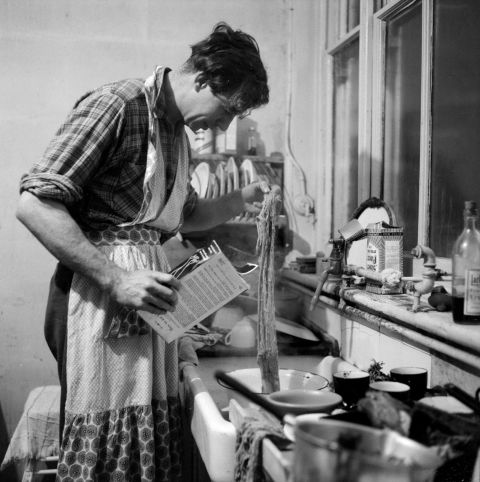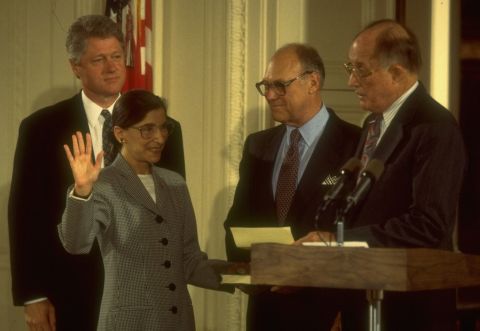There’s No Such Thing as Equal Parenting
I have a feminist marriage, except I also don’t.
I’ve been meaning to write this piece for weeks, but I’ve been too busy parenting. In fact, I’m only starting this after the dog’s been walked and fed, the baby’s had some food placed optimistically in front of him and been convinced to go to sleep, and the dishes have been (mostly) done. There’s a pile of clean, unfolded laundry in the hamper and another wet one festering in the washer, but I’m choosing to ignore both. I know that if I take those five minutes to put the damp clothes in the dryer and another 15 to fold the dry ones, it’ll somehow be 30 minutes before I’m back at my computer, and this sliver of nighttime quiet is precious, precious time.
My husband and I didn’t give much thought to what would happen when our careers ran up against the challenges of having a child. We had muddled through the domestic stuff fairly decently until then―or at least that’s how it seems in retrospect. And then we dropped a kid into the mix and what seemed like occasionally uneven scales tilted dramatically in one direction. I don’t mean to imply that my husband doesn’t help. He’s a modern, enlightened, all-around good sport who is especially receptive when handed to-do lists, although he often greets them with an “I’ll do my best”―a phrase I’ve come to loathe for its impervious good intentions.
But the truth―and he would not contest it―is that I do more. Once, in a fit of peevishness, I tracked every minute he and I devoted to household work and tallied the figure at the end of the week. I had done over 12 hours, my husband just over five. I accounted for our totals for a few more weeks and then gave up because of―what else?―lack of time. Was this tabulating ungenerous and shrewish? Probably. Did that make its conclusions any less annoying? No.
The disparities are augmented on nights like tonight when he’s across the ocean tending to business, and I’m at home white-knuckling it on my own. Because of some combination of social, professional, and financial pressures, he travels more for work, works longer hours, and when, in a few weeks’ time, we have our second child, I’ll take about 12 weeks of leave from my job and he’ll take two.
We are far from alone, although we are, in many ways, on the extremely fortunate end of the spectrum. We have a babysitter who works pretty much full-time Monday through Friday, allowing us both to have careers, and local grandparents who help out with childcare. We’re able to pay someone to clean our apartment every now and then and someone to come fix cabinet doors that won’t stay shut. All this means that we spend less time than the average American woman or man on household work, according to the Bureau of Labor Statistics: She clocks in at 2.6 hours a day; he logs 2.1. (Childcare, in the BLS’s metrics, is broken out as a separate category, but women still exceed men in those responsibilities.)
WAS THIS TABULATING UNGENEROUS AND SHREWISH? PROBABLY. DID THAT MAKE ITS CONCLUSIONS ANY LESS ANNOYING? NO.
But all that good fortune doesn’t stop me from harboring resentment about the disparity in our household labors and wondering if the dream of an egalitarian marriage―hell, even the honest attempt―inevitably collapses under the responsibilities of child-rearing, when social pressures amplify and leisure time diminishes. Because, I thought in some subconscious section of my brain that I’d married a Marty Ginsburg (husband of Ruth Bader) or an Andrew Moravcsik (husband of Anne-Marie Slaughter), a man with ambition and drive but also a willingness to put his own career on the back-burner when his wife’s was taking off.




